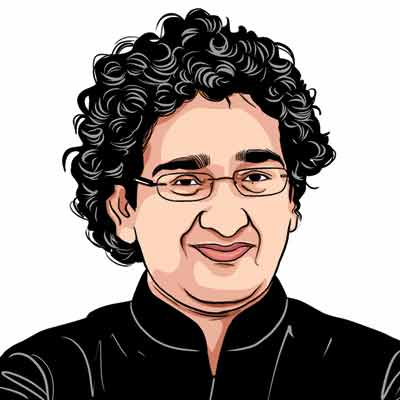Opinion Kangaroo courts
In the Orwellian world we live in,euphemisms arent the province of the state alone. The one that irks me most is Peoples Tribunal.
In the Orwellian world we live in,euphemisms arent the province of the state alone. The one that irks me most is Peoples Tribunal. Youve probably seen it in newspapers a Peoples Tribunal on Batla House,another on Bt brinjal. Or the recent Independent Peoples Tribunal held last weekend in New Delhi,meant to discuss Naxalism,tribal exploitation,and mining. To term an unofficial fact-finding body as a Peoples Tribunal loads it with twin meaning: popular legitimacy and a judicial format. It is these claims that need testing.
Im not for a second suggesting that civil society should not gather to discuss issues or to undertake fact-finding independent of the state. After all,atrocities by the state are hard for officials,no matter how independent,to alone expose. The need for an energetic civil society is as important as,say,a free press or judiciary to keep an eye on power. But Peoples Tribunals dont claim to be mere signatories to a petition; a group of concerned citizens presenting their point of view. The judgment they deliver purports to be twice-blessed. It is sanctified by the voice of the people as well as by the rituals of law. Really?
Take,for instance,the word People the most abused of words in our age of democracy. Jury members in these Peoples Tribunals are neither elected,nor part of a democratic system,like official judges are. The belief that a few enlightened individuals can speak for a homogenous class of People without bothering to win their vote or mobilise their feet is pure hubris. As the Maoists Peoples War believes,why bother standing for elections if a noble heart and a loaded gun is all that is needed to capture power. Even if benign and well-intentioned,Peoples Tribunals are just as non-representative.
But this is a minor quibble compared to the Tribunal epithet attached to the proceedings. Peoples Tribunals claim to be parallel courts with all the paraphernalia of the judicial system witnesses,judges and a jury who will pronounce judgments. Some,like the one last weekend,even had two retired judges as jury members.
World over,if there are two procedural requirements that every court must follow it is this: every man has a right to be heard before he is condemned,and no one can be a judge in his own court. In last weekends Peoples Tribunal on Naxalism,not a single member of the proverbial other side was in attendance. If those indicted were marauding jawans and greedy mining companies,where was their point of view? Witnesses who deposed were almost uniformly in agreement with the end result of the inquiry namely that tribals were being exploited and that Operation Green Hunt was Evil. Very few of those who deposed were seriously questioned. The few disagreements were swiftly brushed aside. There is of course the handicap that every informal tribunal suffers from: officials will almost never agree to testify. But that does not mean that diverse points of view are neither considered nor articulated.
I can imagine all this sounds terribly boring,but there is a reason why our judicial system has these procedural hurdles to ensure that even the vilest of the vile are heard out,and there is the appearance of fairness. To emphasise the importance of procedure,heres a reverse example. In 2008,in response to a Supreme Court directive,a National Human Rights Commission team visited Chhattisgarh; its report found many allegations against the Salwa Judum to be untrue. This fact-finding report provoked howls of protests from human rights groups who argued that the NHRC team had visited the wrong villages,and had not heard many of the real victims. In other words,the NHRC heard only one side. How different was the Independent Peoples Tribunal proceedings?
In fact,the interim observations of the jury,released on April 11,read like the script of the film Avatar. Tribals,the jury held,are far more humane and committed to universally accepted values than our urban society. The jury criticised the corporate grab of their resources and,amongst other demands,asked that the state halt operation Green Hunt. These are not the well-researched deliberations of a genuine inquiry. It is propaganda,or put more politely,it is a joint-communiqué of like-minded people like the press release that follows the BJPs chintan baithak or the CPMs politburo meeting. Fair enough. But if only they would honestly say so.
vinay.sitapati@expressindia.com


